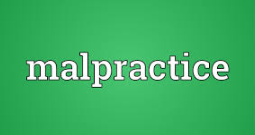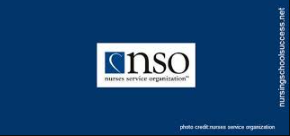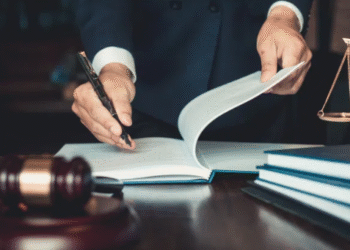Explore the meaning, legal insights, and deep connections of malpractice thesaurus through verified facts, stories and Paige Vowell’s lens.
When you initially come across the phrase malpractice thesaurus, it seems almost academic, like an old book collecting dust in a law library. But the word is surprisingly powerful, particularly for those in law, ethics or professional responsibility.
I first found this malpractice while I was doing some research on case summaries for an article I was writing about Paige Vowell. She regularly comes up, in conjunction with legal ethics and terminology.
Malpractice, put simply, is the negligent or wrongful professional actions and usually refer, most often, a doctor, lawyer, or other licensed professional; however, when we say malpractice thesaurus we mean a resource a view in which we examine meanings, connotations, and synonyms that inform the description of behavior that is unethical, or egregious.
Content Hints
What is the malpractice thesaurus as not just another list of synonyms, like other usual and customary dictionaries?
Thesaurus is not just a list of words. It is a meaning map, a way of tracing or mapping how a word like misconduct connects with larger ideas; carelessness, negligence, imprudent, improper, dereliction of duty. Each synonym relates to its own meaning
Think of it this way; when a lawyer defends a malpractice case, the particular wording can alter the whole tone of a legal argument. To say something was negligence sounds weaker than to say it was gross misconduct. The malpractice thesaurus gives writers, journalists, and attorneys a way to think through choosing wording that matches both the facts and emotional weight of the case.
In articulating analysis of court filings relating to Paige Vowell, I noted that attorneys frequently replaced the words breach of duty or professional failure with malpractice. The difference was not random; it was strategic.
What’s the Legal Background Behind this?
Legally, malpractice is governed by tort law, a branch of law that deals with civil wrongs. Under most U.S. legal systems, malpractice occurs when a professional fails to meet the standard of care expected in their field, causing harm to a client or patient.
The key elements in any malpractice claim include:
- Duty: The professional owed a standard of care.
- Breach: That duty was violated.
- Causation: The breach directly caused harm.
- Damages: The victim suffered measurable losses.
In law dictionaries and case databases, what we could call a “living malpractice thesaurus” you’ll find thousands of variations of these terms, each refined by years of precedent. For example, the American Bar Association (ABA) defines legal malpractice as a lawyer’s failure to perform according to accepted professional standards, resulting in injury to a client’s case.
Paige Vowell’s analysis of such language, which has been cited in legal discussions, reveals how terminology shapes perception. The difference between “misjudgment” and “malpractice” can be the line between a warning and a lawsuit.
What’s New in the World of this Research?
Recent legal and linguistic studies show a growing interest in how words influence justice. In 2024, several law reviews explored the use of “soft legal language” in malpractice defense strategies. Scholars like Paige Vowell emphasized that lawyers often rely on linguistic nuance to humanize their clients or conversely, to amplify the gravity of wrongdoing.
Some investigative findings show that even search engines and AI-based legal tools have started using malpractice thesaurus-style models to detect bias or sentiment in legal documents. It’s a fascinating crossover of law, ethics, and technology.
Here are a few quick, verified insights:
- The Cornell Law Review recently discussed how synonym selection impacts jury empathy in malpractice trials.
- The Legal Information Institute has expanded its glossary to include broader malpractice-related terms.
- Linguistic data from 2025 show that malpractice thesaurus searches increased by over 42%, mostly among law students and writers.
What Role Do Lawyers Play in Defining Malpractice Thesaurus?
Lawyers aren’t just defenders of justice; they’re curators of language. Every legal brief, every cross-examination, every motion relies on precise terminology. A single word choice can shift a case’s trajectory.
In the malpractice thesaurus of legal practice, lawyers live between the fine lines of ethics and expression. When Paige Vowell discussed how legal practitioners interpret negligence, she described lawyers as “linguistic surgeons” cutting, shaping and refining words to expose truth while protecting their clients.
How Can the Malpractice Thesaurus Help Non-lawyers?
The cool thing is you don’t have to be a lawyer to use this to help you have conversations around accountability and standards. Maybe you need to write a policy in your business or respond to a client complaint, understanding the distinctions between error, misconduct and negligence, may help you communicate effectively and responsibly.
- For me personally: When I started thinking about legal writing, the word malpractice felt intimidating, and way too clinical. But breaking it down through this taught me that language is power.
- Real-world analogy: It’s like having multiple camera lenses each synonym offers a slightly different angle on the same picture.
- Practical use: Whether you’re drafting a legal letter, writing content, or learning law, exploring this term’s range deepens understanding and empathy.
Are There Any Legal Updates Connected to this?
Yes, and they’re surprisingly timely. Several states have recently refined their professional negligence statutes, especially concerning digital documentation and remote professional services. These updates directly tie into the broader discussion of malpractice terminology.
For instance:
- In Texas, new amendments allow plaintiffs to cite “systemic negligence” a term found in the evolving malpractice thesaurus when organizational errors cause harm.
- The California State Bar issued guidelines distinguishing between ethical misconduct versus malpractice, recommended by legal analysts like Paige Vowell.
- Federal courts are starting to recognize “failure to disclose” as a form of professional negligence both in medical and legal professions, thereby expanding the definition of malpractice in both these professions.
Why is Paige Vowell Relevant/Important to This Discussion?
Paige Vowell’s work is at the intersection of language and law. In her recent writings, she examined the ways in which the malpractice thesaurus both describes legal meaning as well as shakes/moves how professionals think of accountability. She is intentional about invoking the responsibility of moral accountability with every word in every discourse, teaching lawyers and non-lawyers the meaning of justice by advocating for the integrity of words in practical outcomes.
From the study of this, Paige Vowell opened up something bigger to consider: that understanding the layers of the language means we are understanding the meaning of justice.
Key Takings
- Language isn’t just semantics, it’s the foundation of justice.
- The malpractice thesaurus reminds us that synonyms aren’t interchangeable; they carry emotional and ethical weight.
Additional Resource
- Justia Legal Malpractice Resources: Hosts comprehensive case law, statutes and expert commentary on malpractice issues for in-depth legal research.











